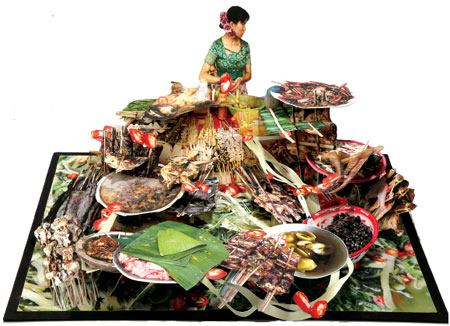Exploring China's ethnic diversity through pop-ups
Updated: 2014-01-29 11:14
By Kelly Chung Dawson in New York (China Daily USA)
|
||||||||
Discovering a sense of pride and identity with a neglected heritage
In transit at a Chengdu train station in 1996, the photographer Colette Fu, then an English teacher traveling around China, spotted a group of Yi minorities wearing capes that marked their heritage. She approached them with a map, and signaled that one of them should point to their home. Fu's own mother was Yi, so when the boy pointed to the Daliang Mountains, she determined to travel there.
In the region's capital, by chance she met a man who shared her surname. He agreed to take her home to her mother's village, and although they barely shared the same language, she agreed to go. For 10 days they traveled to arrive at her ancestral home, where she was welcomed as though she had fallen from the sky. Her relatives sacrificed chickens, goats and finally a cow, thanking the gods that she had returned. A tree was planted in her honor.
And although her camera died shortly before arriving at the village, her memories of that week remain vivid because they changed the course of her life, she recalled recently in an interview with China Daily about We are Tiger Dragon People, a new project of pop-up photography about Chinese minority groups.
"For the first time I really felt a sense of identity and pride in being connected with my heritage," said Fu, who grew up in New Jersey and Virginia. Before traveling to China, Fu had drifted, partying aimlessly and working restaurant jobs. Her heritage was more than unimportant; for years she had refused to eat Chinese food, she recalled with a laugh.
"For so many Chinese Americans, there's a sense of being lost in feeling Chinese in America, but feeling American in China," she said. "As a child I was sensitive about being called a 'chink' and in some ways, I ended up denying my culture. So when I was finally there in the village, even though I couldn't fully communicate in Yi, the experience completely changed me for the better."
Fu eventually returned to the US for a second degree in photography, later graduating as the valedictorian of her class. In 2008, she returned to China through a Fulbright Scholarship to apply her training in the construction of pop-up books to the documentation of Chinese minorities.
"I want to bring an awareness of these people, because in America people assume you either speak Cantonese or Mandarin," Fu said. "Americans don't understand how wide a variety of people there is beyond Han. I didn't understand why I was different from other Chinese girls growing up - my hair was wavy, and I had big bones, but all I knew was that I didn't feel the same."
Fu has designed pop-up art and other work for Vogue China, Moet Hennessy Louis Vuitton and Canon Asia; her work is also archived in the Library of Congress.
The books are strikingly colorful. In one scene, young women of Wa descent whip their dark hair in a ritual swinging dance, paying respect to what they believe to be the "divine" beat of a wooden drum.
In another scene, a Dulong woman's tattooed face grins with rotted teeth against the backdrop of a rushing river. Numbering only 4,600 today, the Dulong people reside along the borders of Tibet and Myanmar; their women are tattooed to render them unattractive to neighboring tribes. As of 2009, there were only 40 tattooed women left in the tribe.
Fu will travel to Shanghai in the coming year to continue her documentation of minority groups, this time with a focus on southwest China, she said. She hopes to broaden her focus to include migrant workers, pollution and other topics on which she might collaborate with journalists.
Although Fu has faced criticism for potentially exploiting traditional cultures, she believes she has chosen to portray them the way they would hope to be viewed.
"I think they are beautiful people, and I think their festivals are fun, so I hope that's clear in the work," she said. "I'll leave the political stuff to other people, because although I understand that there's a history of exploiting 'the other', I'm also 'the other'. I'm not interested in showing the struggle of being poor or disenfranchised, because this project was always about me finding something I became proud of - my heritage."
Fu's books will be on display this weekend at Brooklyn's LA Book Fair in New York.
kdawson@chinadailyusa.com
|
Colette Fu's photography pop-up books depict the traditions of Chinese minority groups. Provided to China Daily |
(China Daily USA 01/29/2014 page2)
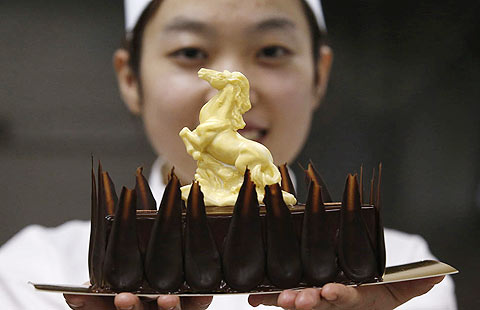
 China welcomes Year of the Horse
China welcomes Year of the Horse
 Musical celebration of Fab Four anniversary
Musical celebration of Fab Four anniversary
 Nice day for a cool white wedding
Nice day for a cool white wedding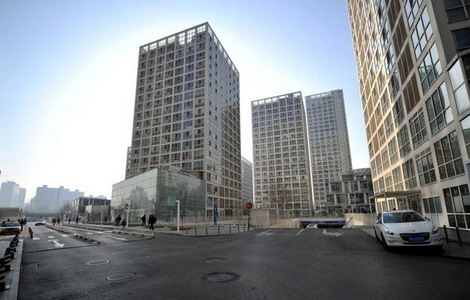
 Home-bound workers ease crowding in Beijing
Home-bound workers ease crowding in Beijing
 Putin pays tribute to Siege of Leningrad victims
Putin pays tribute to Siege of Leningrad victims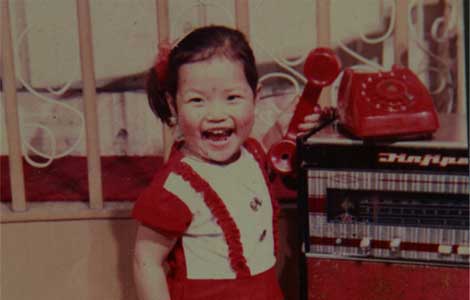
 Chinese ace Li Na before she was famous
Chinese ace Li Na before she was famous
 Xi visits soldiers on frozen northern border
Xi visits soldiers on frozen northern border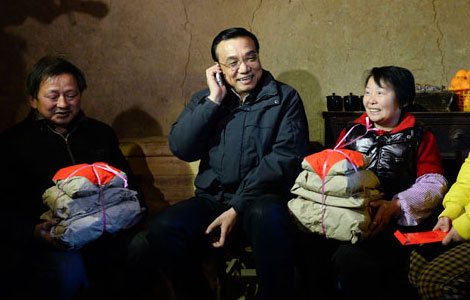
 Premier calls for action to relieve poverty
Premier calls for action to relieve poverty
Most Viewed
Editor's Picks

|
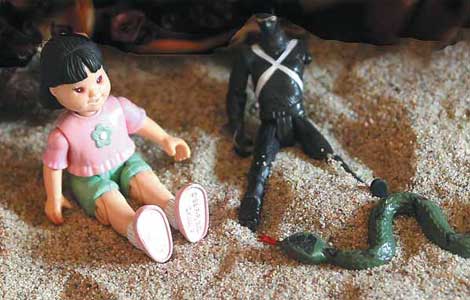
|

|

|

|

|
Today's Top News
China-themed malls a new trend in the Bay area
Replace dollar with super currency: economist
Japan should learn from Germany
Bird flu prompts countermeasures
Hotline on way for Chinese abroad
South China Sea archives open in Hainan
Some good advice for Japan on comfort women
US, UK in app-tapping scandal
US Weekly

|

|
